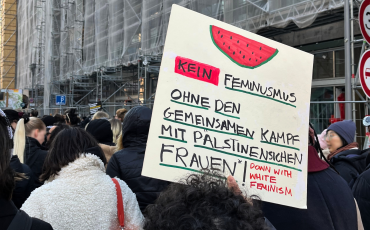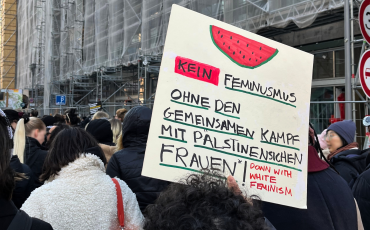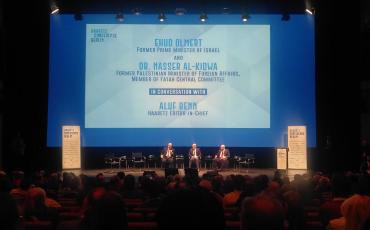From September 28th until October 1st, Alsharq e.V. together with Rosa-Luxemburg-Stiftung held an international conference "Connecting Resistances: Emancipatory Activism in West Asia, North Africa, and Germany" in Berlin. Anna-Theresa Bachmann and Johannes Gunesch from Alsharq e.V. attended the conference. Impressions and results as well as interviews with participants will be published in this dossier.
Almost eight years ago, a wave of protest hit many countries in North Africa and West Asia, disrupting decades of authoritarian rule, opposing neoliberal market logics and demanding social, political and economic justice. But not only in Tunis, Sanaa or Damascus did people take to the streets to hold policy makers accountable for their actions, as the Occupy movements in North America and Europe has shown. Fast-forwarding to today however, the restoration of authoritarian regimes and the rise of right-wring populism put tremendous pressure on emancipatory activism, intellectuals and the greater civil societies in many parts of the world.
Connecting resistances and building alliances across borders therefore might be more be needed than ever to confront today’s global challenges and local contestations. Accordingly, Rosa Luxemburg Stiftung and Alsharq co-hosted a three-day conference by the title of “Connecting Resistances – Emancipatory Activism in West Asia, North Africa and Germany” in late September 2018. The conference brought together 50 activists, journalists and scholars from different countries and fields to create awareness for each other’s struggles as well as to re-think strategies of support. They thereby created a safe space where they reflected on the intertwines of the pressing issues that they are currently facing in their respective contexts. As such, topics ranging from feminist and youth movements to migration and militarization policies as well as possibilities of activism in exile where put on the table. Within the framework of the conference the participants further discussed notions of transnational solidarity while being aware of power ambivalences between regions and actors.
While some impressions of the three-days conference were presented at a public event in Berlin on October 1, Rosa Luxemburg Foundation and Alsharq would now like to share more outcomes of “Connecting Resistances”. As organizers, Rosa Luxemburg Foundation and Alsharq thereby attempt to build on and develop these discussions by making them accessible to a greater audience. The following dossier is such an attempt, which can only highlight some aspects of an ongoing debate across North Africa, West Asia and Germany.
ROSA LUXEMBURG STIFTUNG is one of six major political foundations in Germany and linked to the Left Party. It pursues political education work; promotes international understanding and cooperation; and supports talented and committed young people through scholarships. Rosa Luxemburg Stiftung promotes a critical analysis of society and fosters networks of emancipatory political, social and cultural initiatives around Germany. Internationally, it participates in cooperative projects and advocates for a dialogue between the Global North and South conducted on equal footing.
ALSHARQ is the leading independent German platform for alternative information about the region of West Asia and North Africa (WANA) and was founded in 2005. It is working to promote dialogue and political education about the WANA region in Germany. In addition to journalistic work on alsharq.de, Alsharq organizes events such as lectures, film screenings, and seminars.





















